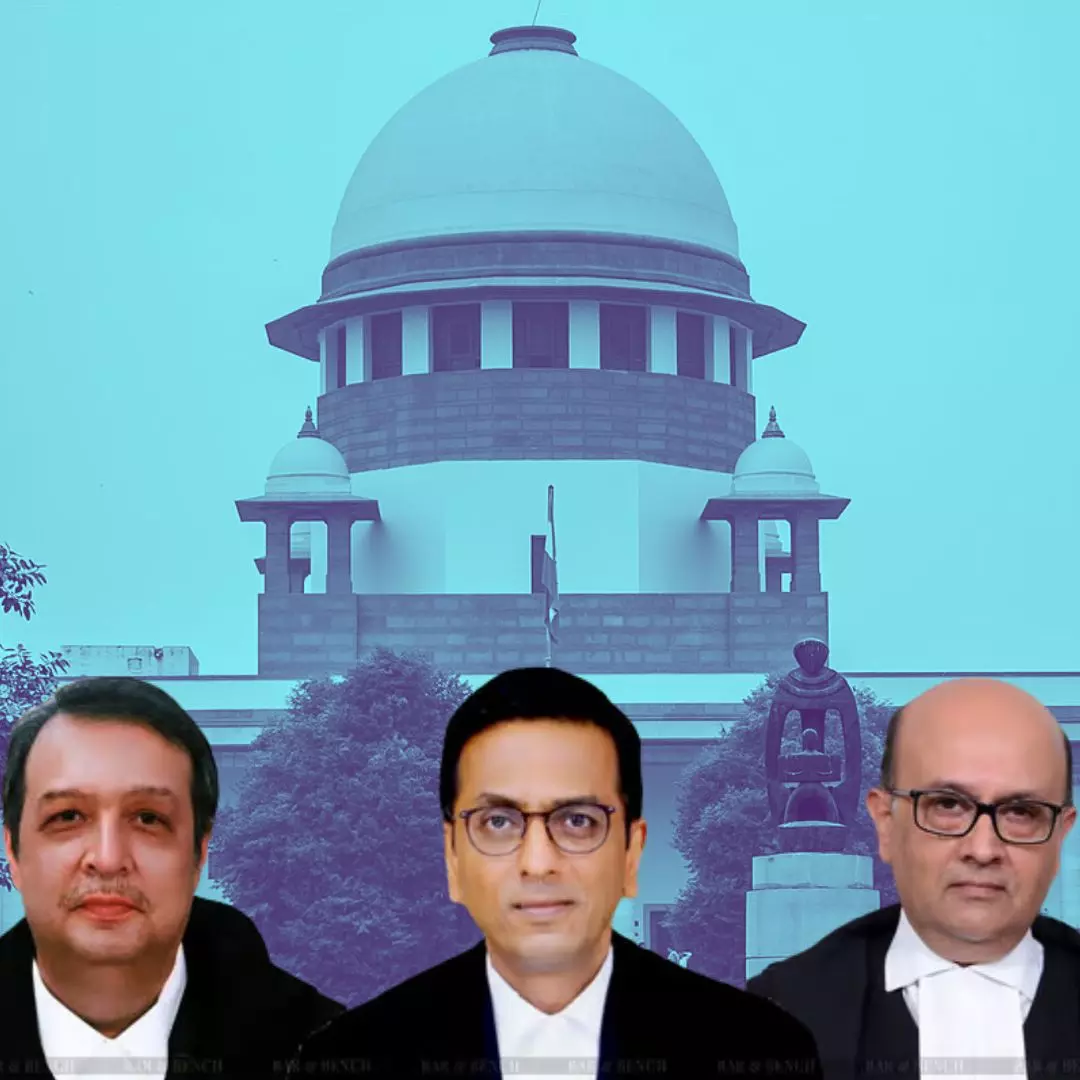
Image Credit: Barandbench, Wikipedia
SC Explores Criminalization of Marital Rape: 'If a Wife Says No, Is Divorce the Only Option for Her Husband?'
Writer: The Logical Indian Crew
We are an independent and public-spirited digital media platform for Indian millennials. We report news and issues that matter as well as give you the opportunity to take action.
India, 18 Oct 2024 8:29 AM GMT
Editor : The Logical Indian Team |
We are an independent and public-spirited digital media platform for Indian millennials. We report news and issues that matter as well as give you the opportunity to take action.
Creatives : The Logical Indian Crew
We are an independent and public-spirited digital media platform for Indian millennials. We report news and issues that matter as well as give you the opportunity to take action.
Supreme Court debates the criminalization of marital rape, questioning the legal protections that allow husbands to force sex on their wives.
The Supreme Court of India commenced hearings on October 17, 2024, regarding the criminalisation of marital rape, challenging the legal immunity granted to husbands under Exception 2 of Section 63 of the Bharatiya Nyaya Sanhita (BNS). The Centre opposed the plea, arguing that criminalising marital rape could destabilize marriages and disrupt societal norms. Senior Advocate Karuna Nandy, representing petitioners including the All India Democratic Women’s Association, argued that the current law reduces women to mere sexual objects and violates their fundamental rights. The court is set to continue discussions on this significant issue on October 22, 2024.
Legal and Social Implications of Marital Rape
During the hearing, Chief Justice DY Chandrachud and Justices JB Pardiwala and Manoj Misra questioned whether criminalising marital rape would indeed impact the institution of marriage as claimed by the Centre. Nandy countered that the right to refuse sex should be respected and that existing laws already classify non-consensual sex as an offence. She emphasized that this case is about challenging patriarchal norms rather than a conflict between genders. The court also explored scenarios where a wife declines sexual advances, raising questions about a husband's recourse in such situations.
Historical Context and Ongoing Debate
The petitions challenge provisions that have historically exempted husbands from being prosecuted for marital rape, reflecting a broader societal debate on women's rights within marriage. The Supreme Court has previously acknowledged the need to reassess these legal protections, with Nandy asserting that retaining such exceptions perpetuates gender inequality. The Centre's affidavit argued that marital expectations complicate the legal landscape, suggesting that non-consensual acts within marriage should be viewed differently from those outside it. This ongoing dialogue highlights the tension between traditional views on marriage and evolving perspectives on consent and autonomy.
Questions and Answers
1. What is the Supreme Court currently hearing regarding marital rape?
The Supreme Court is hearing petitions challenging an existing legal exception that allows husbands to avoid prosecution for sexual acts with their wives unless she is a minor. Petitioners argue this exception violates women's rights and should be deemed unconstitutional.
2. Why does the government oppose criminalizing marital rape?
The government argues that criminalizing marital rape could disrupt marriages and lead to serious disturbances in familial relationships. They maintain that there exists an expectation of sexual access within marriage, which justifies the current legal framework.
3. What are the implications if marital rape is criminalized?
If marital rape were to be criminalized, it could redefine consent within marriage, affirming a woman's right to refuse sex without facing legal repercussions or social stigma. This could lead to significant changes in how marital relationships are perceived legally and socially.
4. What arguments are being made by advocates for criminalizing marital rape?
Advocates argue that non-consensual sex should be recognized as rape regardless of marital status. They emphasize that existing laws reduce women to objects without agency and violate their fundamental rights.
5. When will the next hearing on this issue take place?
The next hearing is scheduled for October 22, 2024, where the Supreme Court will continue examining the constitutional validity of the exception protecting husbands from prosecution for marital rape.
 All section
All section














